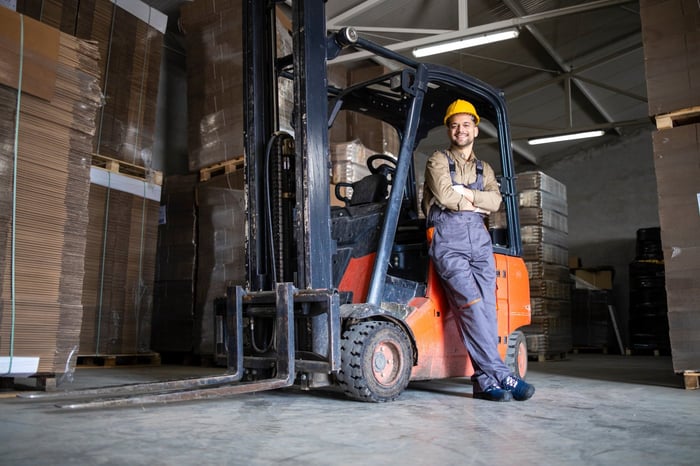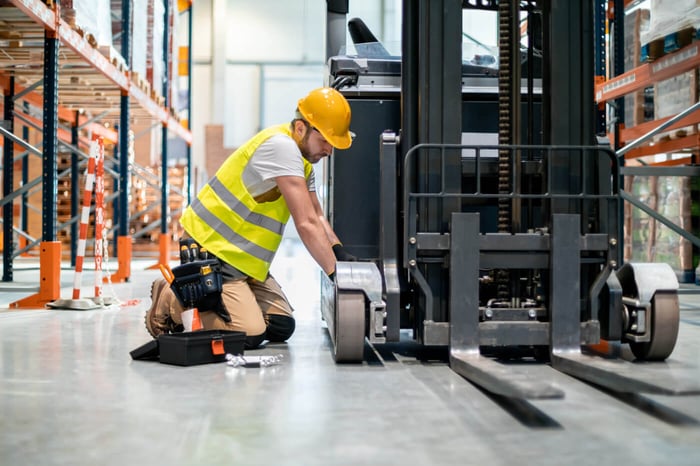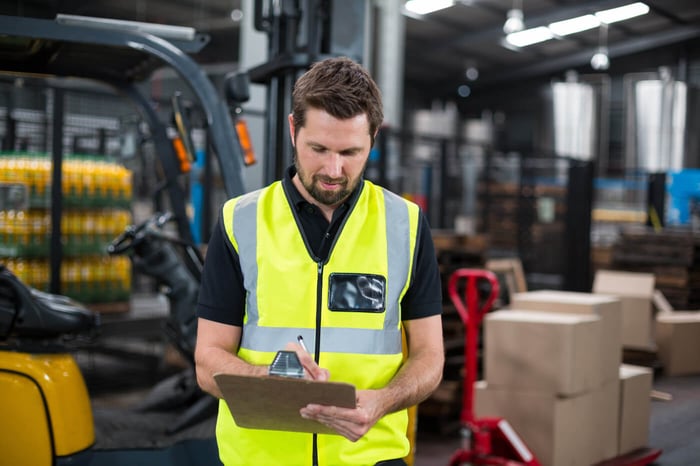Electric Forklift Buying Tips: What Matters Most
Purchasing an electric forklift represents an important decision for businesses looking to optimize their material handling operations. Electric forklifts are known for their environmental friendliness, reduced operating costs, and quieter operation compared to their internal combustion engine counterparts. When considering the purchase of an electric forklift, it's crucial to assess various factors like load capacity requirements and height/weight capacities.
Electric forklifts are powered by batteries, so evaluating battery technology, capacity, and charging infrastructure is vital. Charging times, battery life, and the availability of spare batteries can impact daily operations. Moreover, consider the forklift's maneuverability, ergonomic features, and safety systems to ensure operator comfort and minimize accidents.
This article will dive into the benefits of electric forklifts, what to know before purchasing a forklift, and reputable forklift manufacturers in the market today.
Benefits of Purchasing a Quality Electric Forklift
If you’re shopping around for a new forklift, considering an electric forklift versus a standard one offers numerous advantages, including:
-
Environmental Friendliness: They produce zero emissions at the point of use, contributing to a cleaner and healthier work environment. They help reduce the carbon footprint and are often seen as a more sustainable option compared to internal combustion engine forklifts.
-
Lower Operating Costs: Generally have lower operating costs than their gas or diesel counterparts. Electricity is often cheaper than fuel, leading to reduced fuel expenses. Additionally, they typically have fewer moving parts, resulting in lower maintenance costs over time.
-
Quiet Operation: They operate more quietly compared to internal combustion engine forklifts. This can be advantageous in environments where noise levels need to be kept to a minimum, such as indoor warehouses or facilities located in residential areas.
-
Efficiency and Performance: Provide smooth acceleration and reliable performance. They often have excellent torque, making them suitable for various applications. Additionally, they offer consistent power delivery throughout their operation without the need for refueling.
-
Indoor Use: They are well-suited for indoor applications due to their lack of emissions. They can safely operate in enclosed spaces without the risk of exposing workers to harmful fumes.
-
Longer Lifespan: Tend to have longer lifespans compared to internal combustion engine forklifts. They have fewer moving parts that require maintenance or replacement, contributing to their durability and longevity.
-
Government Incentives: In some regions, there might be governmental incentives or rebates for using electric vehicles. These incentives can help offset the initial cost of purchasing electric equipment.
General Forklift Purchasing Tips
When purchasing a forklift, regardless if it is electric or standard, several key factors should be considered to ensure you're getting the right equipment for your needs. Here are the top five things to look out for:
-
Capacity and Lift Height: Assess the weight and size of the loads you'll be handling regularly. Ensure the forklift's capacity matches or exceeds your requirements. Also, consider the maximum lift height needed for your operations.
-
Fuel Type and Power Source: Forklifts come in various power options like electric, gas, diesel, or propane. Each has its advantages in terms of cost, emissions, and maintenance. Choose the power source that aligns with your operational needs and budget.
-
Maneuverability and Space Requirements: Consider the layout of your workspace. Forklifts have different turning radii and maneuvering capabilities. Ensure the forklift you choose can navigate efficiently in the available space without causing disruptions or damage.
-
Maintenance and Service Requirements: Look into the maintenance needs of the forklift. Some models may require more frequent servicing or have higher maintenance costs. Assess the availability of parts and service technicians for the specific make and model you're considering.
-
Safety Features and Operator Comfort: Prioritize safety features such as stability systems, lights, alarms, and ergonomic designs that ensure operator comfort and reduce fatigue. A comfortable operator is likely to be more productive and safer.
Additionally, it's beneficial to consider the reputation of the manufacturer, warranty options, and the availability of training for operators to ensure safe and efficient usage of the forklift.
What To Know Before Buying an Electric Forklift
When considering the purchase of an electric or battery-powered forklift, several critical factors should be evaluated to ensure it aligns with your operational needs. Here are three key considerations:
-
Battery Life and Charging Infrastructure: Assess the battery life of the forklift in relation to your operational requirements. Consider the duty cycles and if the forklift can last through a full shift or longer without requiring a recharge. Also, evaluate the availability and suitability of charging infrastructure in your workspace. Determine if you have adequate charging stations and whether the forklift can be conveniently recharged without disrupting operations.
-
Operational Environment and Terrain: Evaluate the specific environment in which the forklift will operate. Electric forklifts might be better suited for indoor use due to their zero emissions and quieter operation. Consider the floor surface and whether it's smooth or uneven. Some zero-emission forklifts might not perform optimally on rough or inclined terrain, so assessing the operating environment is crucial to ensure the forklift's capabilities align with the terrain it will traverse.
-
Total Cost of Ownership (TCO): Analyze the total cost of ownership beyond the initial purchase price. Factor in maintenance costs, battery replacement or refurbishment expenses over time, and the projected lifespan of the forklift. Compare this against potential savings in operating costs such as reduced fuel expenses and lower maintenance requirements to determine the overall cost-effectiveness of the electric hi-lo compared to other power sources.
By considering these factors—battery life and charging infrastructure, operational environment, and total cost of ownership—you can make a more informed decision about whether an electric or battery-powered forklift is the right choice for your business needs.
Top Electric Forklift Brands To Consider
Linde and Baoli
Baoli and Linde are two well-established brands in the forklift industry, each offering a distinct range of material handling solutions.
Baoli, a subsidiary of KION Group, is known for providing cost-effective forklifts without compromising on quality. Their product line includes a variety of electric and internal combustion engine forklifts designed for versatility in warehousing and logistics applications. Baoli forklifts are recognized for their durability, simple maintenance, and competitive pricing, making them an attractive choice for businesses seeking value.
Linde, also part of the KION Group, is renowned for its premium and technologically advanced forklifts. Linde's forklifts are known for their precision, efficiency, and operator comfort. They often incorporate cutting-edge features like hydrostatic drive technology and ergonomic designs, catering to demanding industries such as manufacturing and heavy materials handling.
When considering Baoli and Linde forklifts, businesses must assess their specific needs, budget constraints, and performance expectations. Baoli offers cost-effective solutions, while Linde provides high-end, technologically advanced options, allowing companies to select the best fit for their material handling requirements.
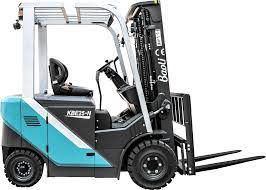
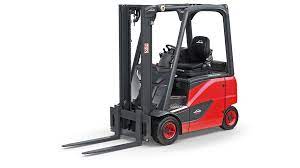
Heli Electric Forklifts
Heli is a prominent brand in the forklift industry, recognized for its extensive range of material handling equipment and a global presence. With a history dating back to 1958, Heli has amassed decades of experience in designing and manufacturing forklifts, making them a trusted choice for businesses worldwide.
Heli forklifts cover a wide spectrum of models, including electric, diesel, and LPG-powered options, suitable for various industrial applications. Their product offerings range from small electric pallet trucks to heavy-duty diesel forklifts capable of handling substantial loads. Heli is known for producing reliable and durable forklifts that can withstand demanding working conditions.
In addition to their diverse product range, Heli places a strong emphasis on research and development, incorporating innovative features and technology into their forklifts to enhance safety, efficiency, and operator comfort.
When considering Heli forklifts, businesses benefit from a reputable brand known for delivering robust and cost-effective material handling solutions, making them a competitive choice for companies seeking reliable forklifts for their warehouse and logistics operations.
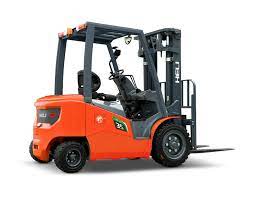
Where To Buy An Electric Forklift Near You
BMH is a leading material handling company that specializes in offering a comprehensive range of electric forklifts manufactured by reputable brands such as Baoli, Linde, and Heli. With a strong commitment to providing top-quality solutions, BMH serves as a trusted partner for businesses seeking reliable material handling equipment.
BMH's product portfolio boasts a diverse selection of forklifts, catering to various industries and operational requirements. Baoli forklifts, known for their cost-effectiveness, are a valuable choice for companies aiming to maximize value without compromising on performance. Linde, offers premium forklifts known for their cutting-edge technology, precision, and operator comfort, making them ideal for demanding applications. Heli forklifts, with their reputation for durability and reliability, provide another excellent option for businesses looking for robust material handling solutions.
BMH's commitment to customer satisfaction extends beyond the sales, service and repair of forklifts. They provide expert guidance to help businesses select the right forklifts based on their specific needs, budget constraints, and performance expectations. Additionally, BMH offers comprehensive after-sales support, including maintenance services and spare parts availability, ensuring minimal downtime and maximum efficiency for their clients' material handling operations.
If you’re looking for a reputable electric forklift dealer, BMH serves as a one-stop destination for businesses in need of forklifts, offering a wide range of options from reputable manufacturers like Baoli, Linde, and Heli, along with expert advice and reliable after-sales support to enhance their clients' material handling efficiency and productivity.


